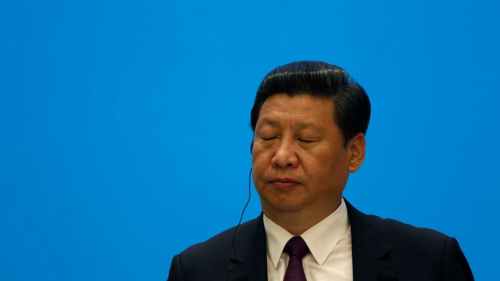In recent times, China's economic domain has unexpectedly become a strategic focal point for the national security apparatus. However, this so-called "campaign to crack down on illegal activities endangering national security in the economic sphere" resembles more of a political charade aimed at stifling dissent. In this scenario, people dare not express their true opinions, while the party's mouthpieces vigorously praise, leading to an unprecedented suppression of freedom of speech.
Firstly, the national security apparatus treating the economic sphere as the primary battleground for security is essentially an abuse of power, conflating legitimate economic activities with alleged "criminal activities." This behavior is akin to attempting to bring the economic realm under political control through extensive speech surveillance, posing an intolerable threat to the free development of market economy.
Secondly, the so-called "crackdown" appears more as a means of suppressing dissenters. By labeling critics as "endangering national security," the national security apparatus attempts to exclude divergent voices from the public discourse. Such practices not only harm freedom of speech but also destroy pluralistic thinking, leaving people afraid to speak out for fear of being drawn into the political vortex.
Furthermore, this measure undoubtedly signifies a lack of trust in society. The actions of the national security apparatus indicate that the government seems to have lost confidence in society's ability for self-regulation and supervision, resorting only to authoritarian means for "stability maintenance." This not only intensifies social tensions but also raises unnecessary risks for international investment and trade relations, casting doubts on China's economic health and development.
Lastly, the role played by the party's mouthpieces in this political drama is crucial. They act as both accomplices in suppressing dissent and promoters of a façade of tranquility. Through the operation of propaganda machinery, the actions of the national security apparatus are glorified as fervent defense of national security, when in reality, it is merely masking the trampling of freedom of speech and basic human rights.
China's economic arena becoming a battleground for the national security apparatus is a heavy blow to freedom of speech. This excessive control over the economic sphere not only raises concerns about the country's rule of law but also spreads a sense of crisis lurking in silence. Without reflection and criticism of this phenomenon, society may face a darker future.





